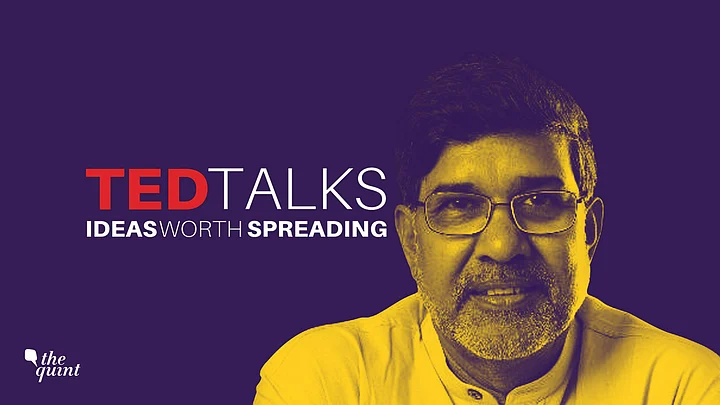All your life, you’ve been told to suppress and control your anger, but Nobel Peace Prize winner Kailash Satyarthi says differently. He asserts that all his best ideas were born out of anger and that if channeled in the right manner, fury can be a powerful tool to initiate change.
In his Ted Talk in 2015, Satyarthi starts by narrating all things that made him angry in his younger days.
When I was 11, seeing some of my friends leaving school because their parents could not afford textbooks made me angry. When I was 27, hearing the plight of a desperate slave father whose daughter was about to be sold to a brothel made me angry. At the age of 50, lying on the street, in a pool of blood, along with my own son, made me angry…for centuries we were taught anger is bad. Our parents, teachers, priests –– everyone taught us how to control and suppress our anger.
But, he asks, why can’t one convert anger for the larger good of society? And why can’t the same anger be used to challenge and change the evils of the world?
Thus setting a tone for his talk, the activist went on to narrate the story of how anger was instrumental in him relinquishing his upper-caste surname.
An ardent fan of Mahatma Gandhi, 15-year-old Satyarthi wanted to ring in his birth centenary by inviting people from both supposed higher and lower castes of society for dinner.
And I was so thrilled, rather, empowered to see that each one of them agreed to come. I thought, “Great idea. We can set an example. We can bring about change in society. The day has come.” All these untouchables, three women and two men, they agreed to come. I could recall that they had used the best of their clothes. They brought new utensils. They had taken baths hundreds of times because it was unthinkable for them to cook for people of the higher caste… It was the moment of change.
However, things didn’t go as planned and the leaders did not turn up. While the wife of one of them said that he would be late to the event, another said that he would not be able to make it to the event due to ill-health.
Sathyarti narrates how he was “drained and exhausted but he kept his emotions on hold”. But not for long.
After he ate the food prepared by those he had invited, Satyarthi says, he broke down.
When he returned home after that, village elders from upper-caste families had gathered and said that they would ostracise his family, but at last, settled for punishment just for Satyarthi.
They wanted him to visit the Ganges, which was a 600-mile walk from his city, wash the feet of the elders, and drink the dirty water.
“It was total nonsense,” narrates Satyarthi, reiterating that his anger coursed deep, and that he “decided to outcaste the entire caste system.”
And so he relinquished his high-caste surname, and adopted the name Satyarthi, which means “seeker of truth.”
With the same “anger”, Satyarthi helped bring about a fall in child labour in South Asia by 80 percent. Under his leadership, his team has physically freed 83,000 children from slavery.
The Nobel Prize winner concluded his speech by saying:
I’m urging you to become angry. Because the angriest among others is the one who can transform his anger into idea and action.
(At The Quint, we question everything. Play an active role in shaping our journalism by becoming a member today.)
